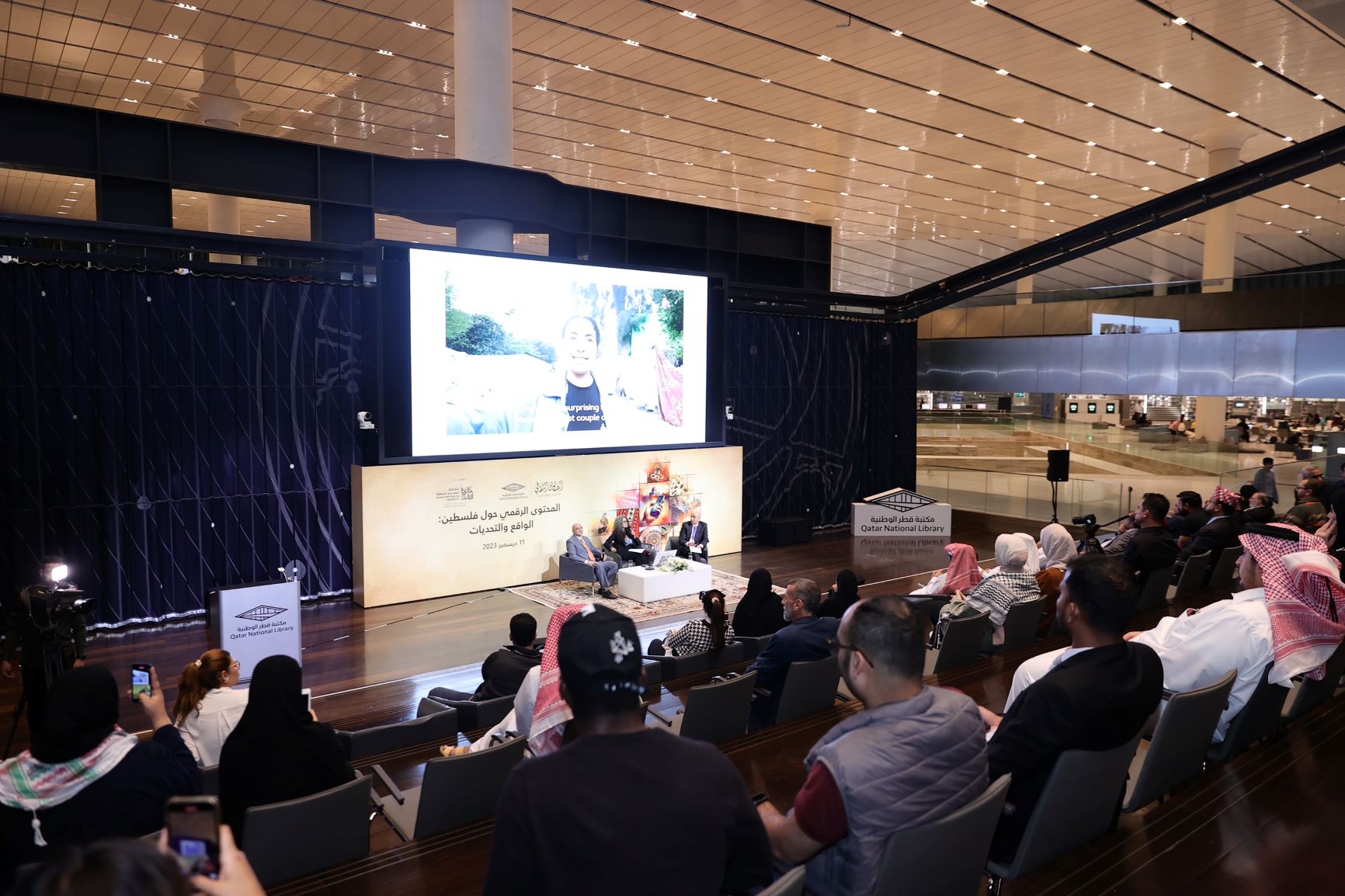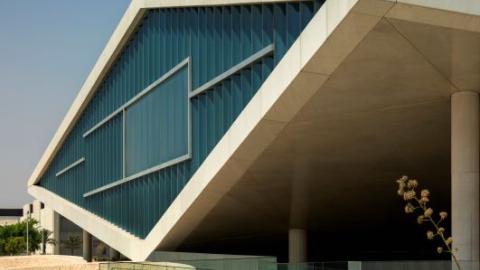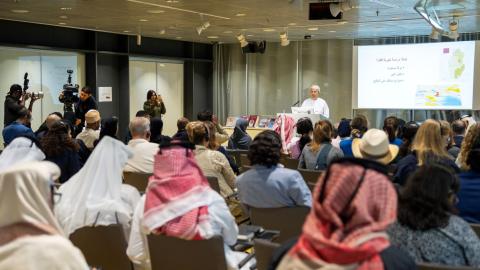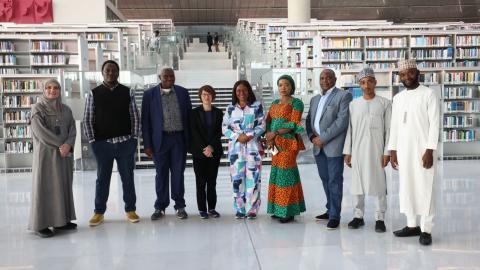
– In a gesture of solidarity with the people in Gaza, Qatar National Library, in collaboration with Hamad Bin Khalifa University, hosted the third session of the Cultural Salon, titled "Digital Content on Palestine: The Realities and Challenges."
Taking place on 11 December, the event gathered experts and enthusiasts for a dynamic discussion about the digital challenges and threats facing the Palestinian cause.
The panel was held in the presence of His Excellency Dr. Hamad bin Abdulaziz Al-Kawari, Minister of State and President of Qatar National Library. Moderated by Dr. Ahmed Ali, Lead Engineer at Qatar Computing Research Institute, the panel featured distinguished speakers including Dr. Hamdi Mubarak, Chief Systems Engineer in the Arabic Language Technologies Department at Qatar Computing Research Institute, and Dima Al Khatib, Executive Director of AJ+ Channels at Al Jazeera Media Network.
During the discussion, Dr. Mubarak and Dr. Ali highlighted the role of language as a vital communication bridge. They stressed that language goes beyond information transmission, reflecting cultural identities and facilitating understanding.
The panelists focused on the breadth and quality of Arabic digital content, assessing its impact on and connection to Palestinian events. Dr. Mubarak said: “We discussed the crucial role of the Arabic language and the gap in Arabic digital content, which does not mirror the language's global significance. We looked at how this shortfall impacts artificial intelligence, creating biases in text and image generation, and examined the double standards of social media platforms, notably in their censorship of pro-Palestine content.”
Dr. Ali added: “Recognizing the potential of artificial intelligence, especially in relation to Palestine, is crucial. Equally important is understanding the issue of media misinformation and its effects on global perceptions of the Palestinian cause. The interactive nature of this seminar played a key role in fostering audience engagement, inviting deeper exploration of these essential topics.”
Dima Al Khatib spoke about the unjust Israeli aggression on Gaza, and the global digital content related to Palestine, highlighting its consequences. She said: “Since October 7th, we've seen a notable shift in the narrative on social media, particularly among youth, that has reshaped the global perception of the Palestinian story. This change, breaking decades of Western media's narrative dominance, sparked widespread demonstrations worldwide. It marks a movement towards re-humanizing Palestinians, countering their portrayal as mere numbers and challenging the historically biased empathetic coverage of Israelis in Western media.”
The Cultural Salon sparked insightful discussions, demonstrating the Library's commitment to fostering cultural understanding and dialogue. The session played a crucial role in the Library's ongoing efforts to highlight Palestinian history and culture, and contributed to a more comprehensive understanding of digital content's challenges and realities.
For more information about this event and upcoming initiatives, please download the QNL mobile app, available on the App Store and Google Play.







